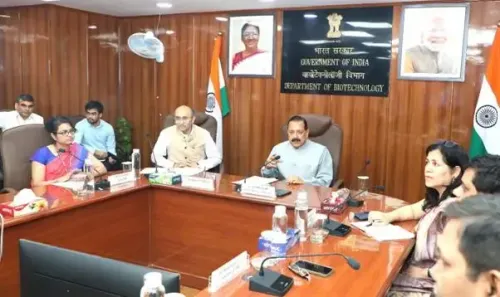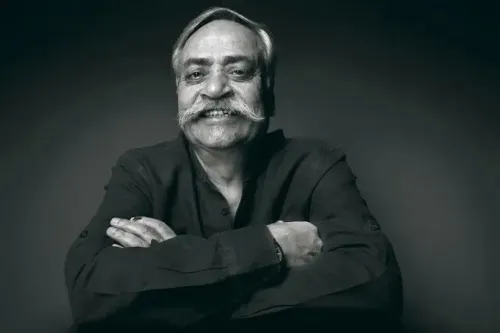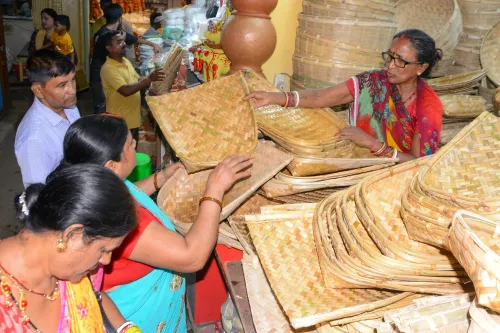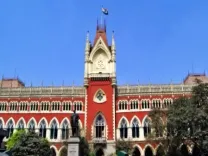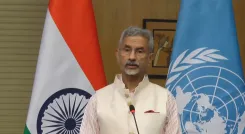Should the Ban on Social Media Be Lifted Immediately? Insights from Nepal's Former Dy PM Rajendra Mahato Amid Gen Z Protests
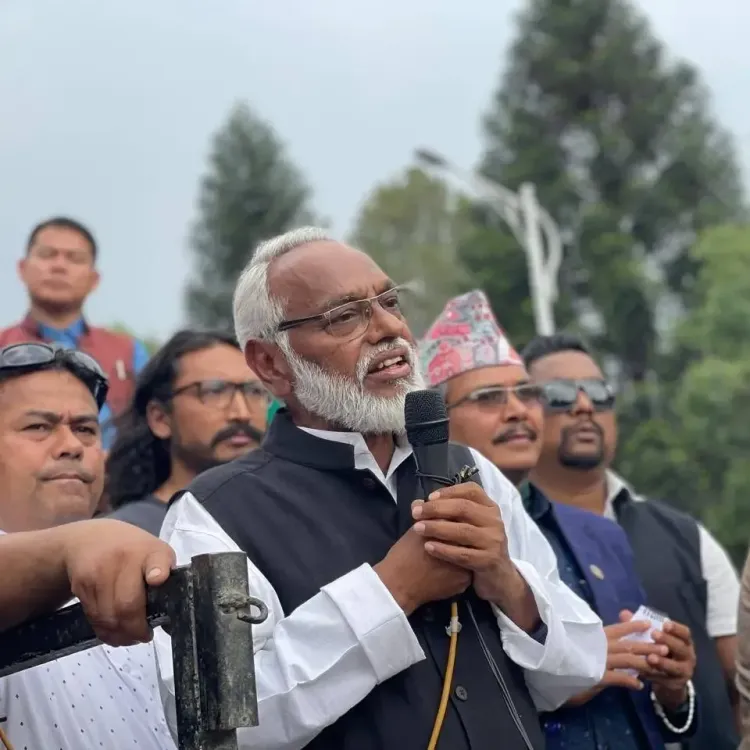
Synopsis
Key Takeaways
- Immediate lifting of the social media ban is crucial.
- Protests reflect deep-seated frustrations with government corruption.
- Government's heavy-handed tactics may exacerbate tensions.
- Maintaining India-Nepal relations is essential for national interests.
- Youth activism plays a pivotal role in shaping future governance.
New Delhi, Sep 8 (NationPress) Former Deputy Prime Minister of Nepal, Rajendra Mahato, has sharply criticized the government's prohibition on social media platforms amidst extensive protests by the nation’s Gen Z youth. He urged for the immediate lifting of the ban, cautioning that the current stringent measures could further inflame tensions in the Himalayan nation.
In an interview with IANS, Mahato stated: "The ban needs to be rescinded without delay. Social media should not be completely prohibited; alternatives must be available. The ban must be lifted immediately. While those responsible must face severe consequences, the injured demonstrators should be treated with compassion. Enforcing curfews will not suppress the protests; it will only exacerbate them throughout the country. The government must respond urgently and effectively."
The demonstrations arose as Nepal’s youth expressed their frustration regarding alleged governmental corruption and the sudden restriction on social media, perceived as a method to extinguish dissent.
Mahato took aim at the ruling Communist parties for cultivating an "anti-India nationalism" that he believes is detrimental to both Nepal and its citizens.
"The Communist parties have fostered an anti-India sentiment in Nepal, which undermines our national interests and the well-being of our populace," he remarked.
He further condemned the social media prohibition as "an assault on democracy and the liberties of the citizens."
"The blanket ban on social media has sparked nationwide protests. This is a blatant effort to obscure governmental failures and silence public voices. The citizens of Nepal have lost their platform for expressing grievances," he asserted.
Emphasizing the widespread discontent, Mahato warned: "Nepali citizens will not accept this in any form. This is utterly intolerable. The entire nation is rising against this action, which contradicts democratic principles. Our youth, in particular, had been utilizing social media to denounce governmental misconduct, but the authorities could not bear this and imposed the ban."
He also connected the ban to the government’s alleged involvement in corruption scandals.
"Any significant corruption allegations that have surfaced implicate the ruling party. To obscure their misdeeds, they have resorted to clamping down on social media. The constitution is being manipulated to fulfill their objectives," Mahato noted.
In discussing Nepal’s international relations, Mahato lamented the deterioration of ties with India under the current administration.
"There is a scheme to undermine the relationship between India and Nepal, which is detrimental to both nations and their peoples. We share profound cultural and religious connections with India that are unmatched by any other country. Regrettably, the government has mischaracterized this relationship. I have long been an advocate for fortifying these ties and capitalizing on this unique partnership, but the Communist parties have opposed it."
He underscored the need for maintaining robust India-Nepal relations.
"Our two nations have enjoyed a solid relationship for a considerable time. Anyone attempting to damage this bond will meet with downfall."
Mahato concluded with concerns regarding international perceptions.
"Nepal achieved independence through sacrifices, yet the global community now critiques these protests, labeling them as assaults on democratic values. This is damaging Nepal’s reputation worldwide," he stated.
Meanwhile, the situation in Kathmandu remains tense. According to The Kathmandu Post, at least eight individuals have perished as the Gen Z-led protests against alleged corruption and the government's social media ban escalated into violent confrontations.
Hundreds of protesters converged at Maitighar to express their outrage over the ban, which has ignited widespread anger among young Nepalis.
The protests, however, spiraled into chaos when demonstrators breached restricted areas and stormed the Federal Parliament in New Baneshwor.
Authorities quickly enforced a curfew in key regions and dispatched the Nepali Army to manage the unrest.
Security forces resorted to tear gas, water cannons, rubber bullets, and even aerial firing in a desperate effort to disperse the crowds. Despite the crackdown, protesters continued to clash fiercely with law enforcement.

